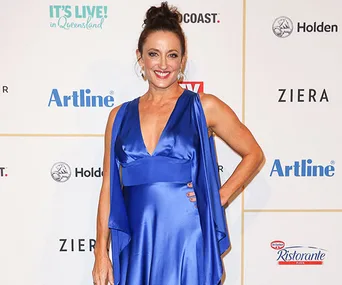Plenty has changed since All Saints first went to air on February 24, 1998.
The TV landscape is different, actors have moved on in their careers and the set of Ward 17 is now most likely the walls of a different show. But 25 years on, the stories remain as memorable as ever.
Touted as part of the ”golden age” of Australian television, the medical drama was at the forefront of ratings for most of its 12-season run, matching the popularity of shows such as Blue Heelers and McLeod’s Daughters.
Like the halls of a real-life hospital, the show was buzzing: with 493 episodes, nine TV WEEK Logie Awards and a welter of accolades, All Saints became embedded in popular culture and catapulted its cast to new heights – especially Georgie Parker, who played nurse Terri Sullivan from 1998 to 2005.
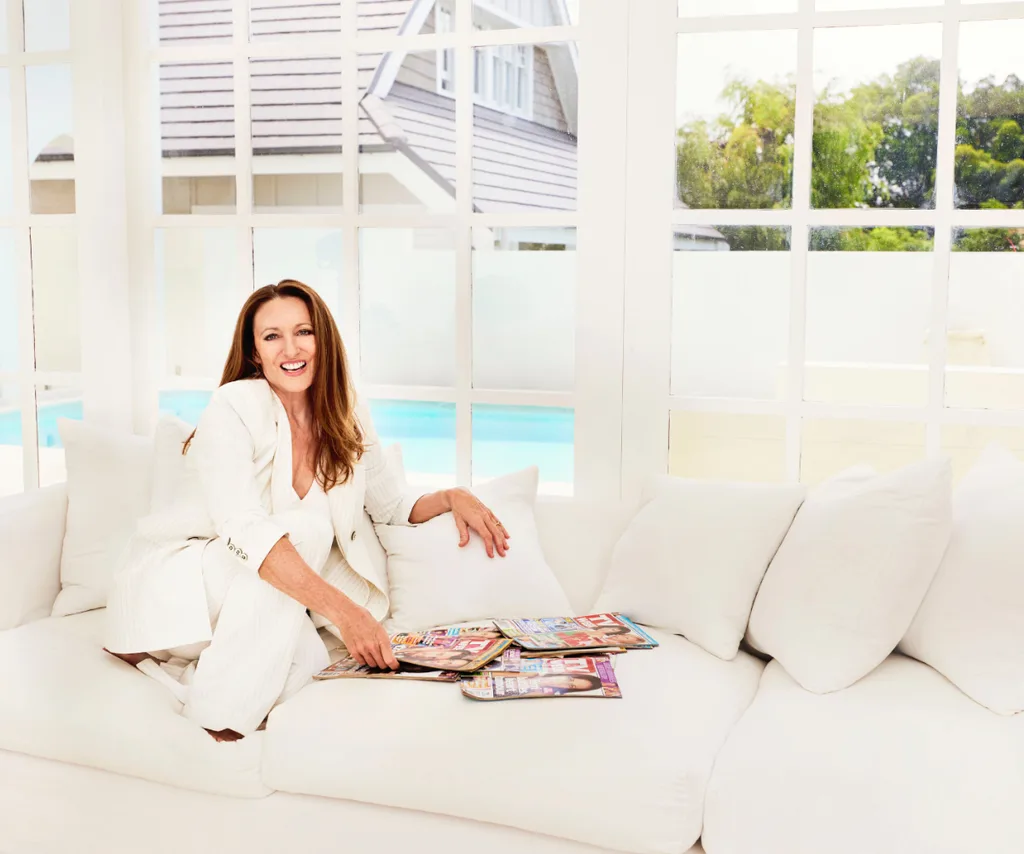
Georgie is all smiles in her TV Week cover photoshoot.
(IMAGE: TV WEEK)On the anniversary of All Saints‘ debut, the actress describes her career trajectory as ”stratospheric” – and that she was both flattered and slightly overwhelmed to find herself the focal point of a top-rating show.
Georgie had starred in other dramas before All Saints, including A Country Practice and Fire, but had never before felt the weight of a brand-new series.
”Every other role, I was joining a train that was already running, so it was exciting to be part of All Saints,” Georgie, 58, recalls.
”It was effortless storytelling: the emergency services and environment they work in creates natural drama. The groundwork was already laid – we just had to tell the stories and add interesting characters to the mix. The audience has to want to spend time with these people – and that’s what All Saints got right.”
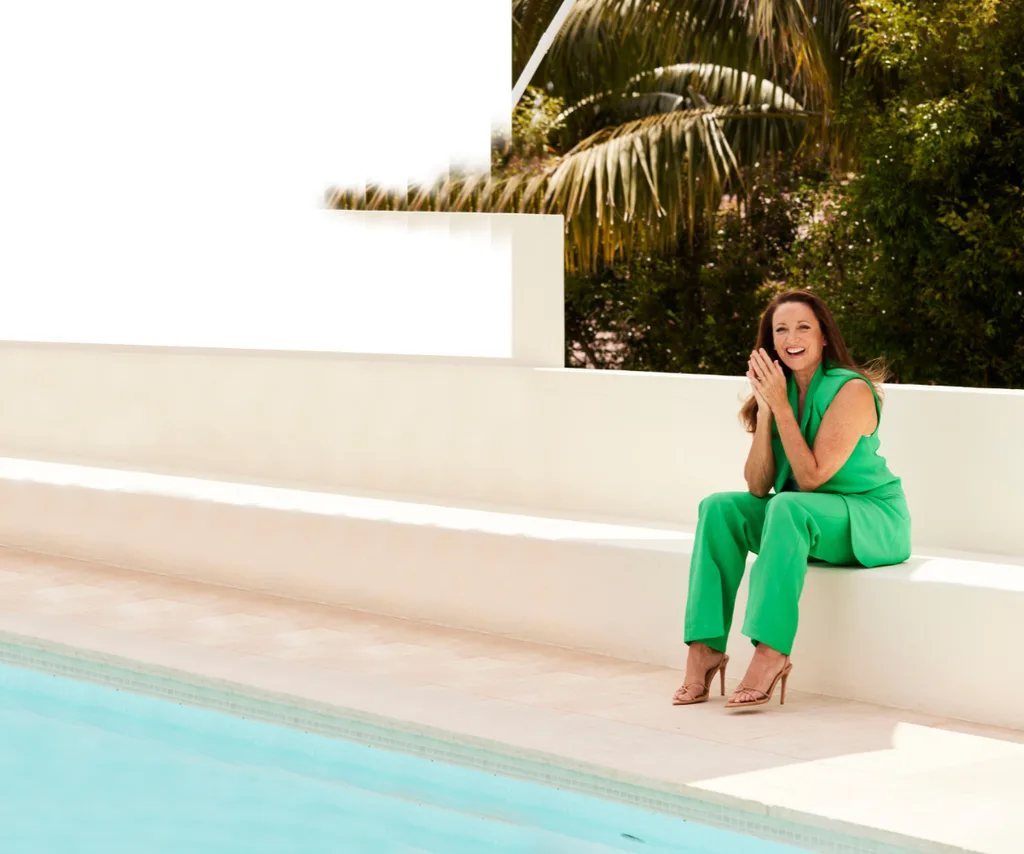
Georgie is celebrating 25 years of All Saints.
(IMAGE: TV WEEK)Production was often intense and strenuous, at a time where a series would run to a 40-week schedule (and roll out 20 or more episodes per season).
But when it came to Georgie’s portrayal of Terri, ”nothing felt forced”.
”Compared to previous roles, it was a different way of resonating,” she says.
”Lucy [her nurse character in A Country Practice] was fun and eccentric, whereas Terri was the complete opposite – she was a gentle character to spend time with. The audience felt protective of her in many ways.”
Georgie adds that staying true to Terri’s identity was paramount.
”You have to know the character and protect them,” she declares.
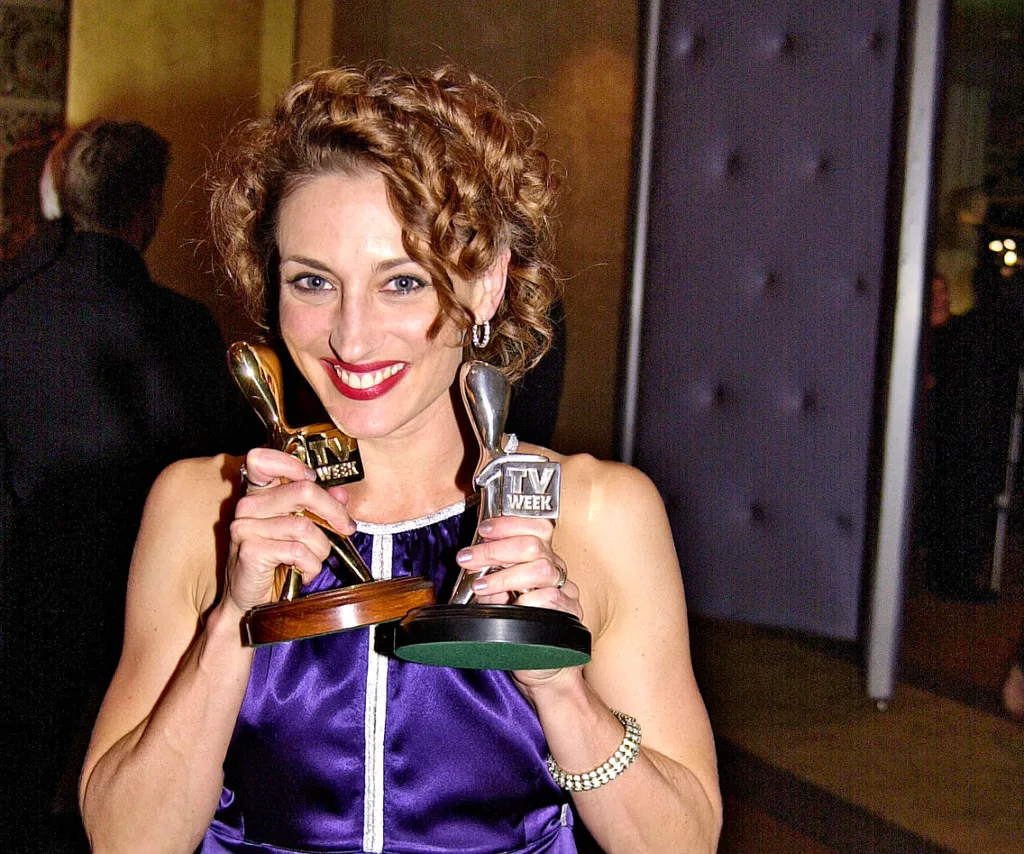
In 2001, Georgie won the Gold Logie and the Most Popular Actress Logie.
(IMAGE: Supplied)The show hit its stride in its second and third seasons, with more than two million people watching each week.
The characters had found their groove, and Terri fell madly in love with Dr Mitch Stevens, played by Erik Thomson.
”I knew [it would work] as soon as Erik walked in [for the auditions],” Georgie recalls of their meeting.
”It’s such an intangible thing to put into words. He had an interesting energy and it felt right.
”We got along well, and it was important that we could play the truth of those people, which was that Terri and Mitch loved each other, but couldn’t be together and how they fought to be. It was an intoxicating chemistry.”
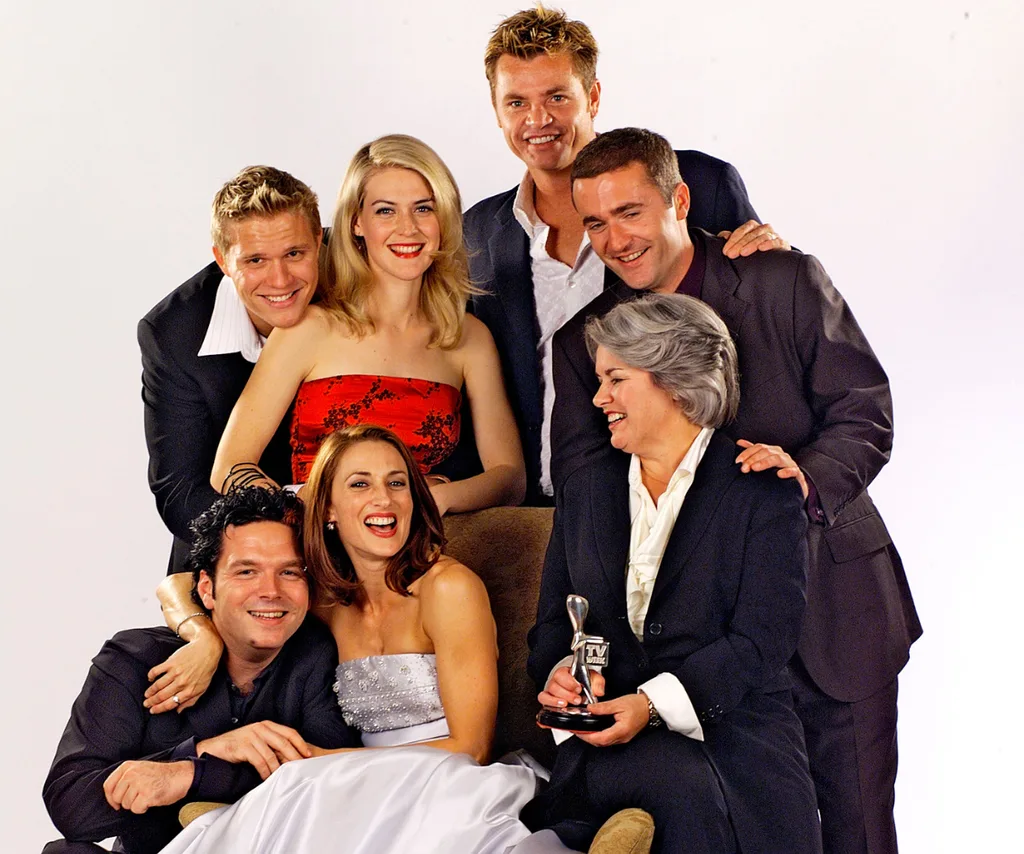
The fictional couple appeared on many magazine covers (TV WEEK included) and were the topic of watercooler conversations about whether they’d eventually get together.
In 2003, fans were left devastated when Mitch died of a brain tumour. Georgie remembers filming the scene all too well.
”It was incredibly sad [to film], but in a way it was easy, because we were saying goodbye to working with each other,” Georgie explains.
”It was beautifully written.”
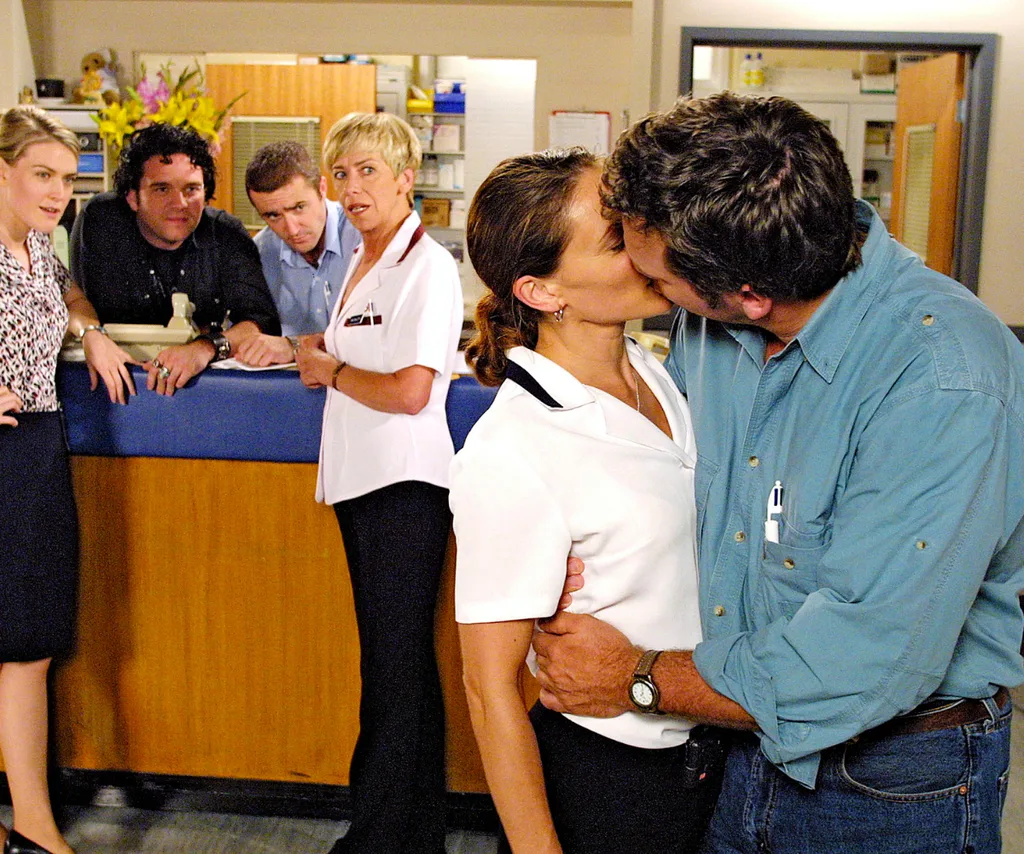
Georgie and Erik Thomson had a special chemistry in All Saints.
(IMAGE: Supplied)While the chances of All Saints succeeding in the era of streaming television comes down to how it’s rebooted (”it wouldn’t be a reboot but a revisit,” she says), and the public’s desire for big drama, Georgie challenges the notion that Australian productions can’t deliver.
In fact, she welcomes it – and the return of Terri.
”Oh, I’d do it! But it’s not up to me,” she says with a laugh.
”I loved spending time with Terri and I’d be happy to find out more about who she is now, how her life turned out, and what she has to offer nursing and her colleagues.
”People want Australian voices and to see their landscape on TV – but they want the excitement of big drama too. Sometimes we can be a bit shy of doing it. But it would be nice if we didn’t always do crime.” [Laughs]
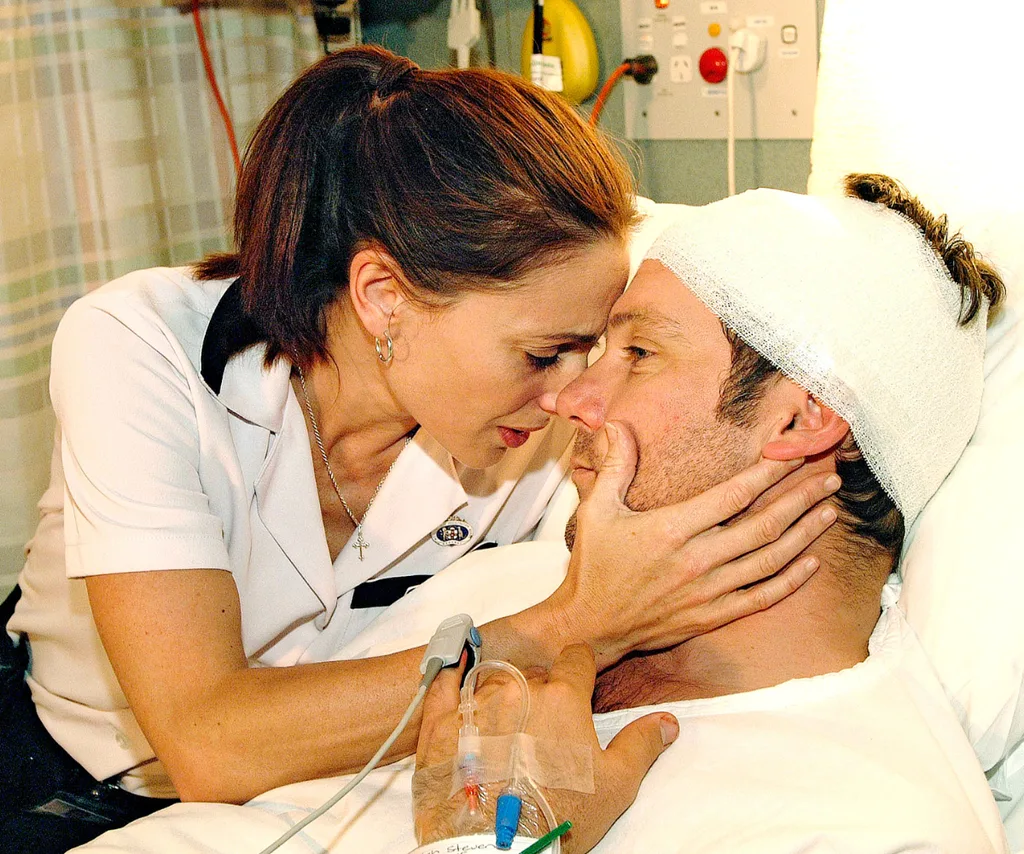
Mitch’s death in 2003 was one of TV’s most heartbreaking moments.
(IMAGE: Supplied)The fact that medical dramas have endured on Australian TV is proof they work and can be adapted to any era or place.
”It [a hospital drama] definitely has legs,” Georgie says.
”A hospital is a hub of drama – and diversity is something everyone is responding too – so it’s an effortless place for that to occur, because it’s a place everyone comes.
”There’s not only a rich catalogue of characters to draw on, but also a great platform for new people and issues.”

When Ben (Brian Vriends) and Bronwyn (Libby Tanner) married in 2003, Jared (Ben Tari, far left), Terri, Rebecca (Natasha Beaumont) and Scott (Conrad Coleby) were there.
(IMAGE: Supplied)Modest about her own contribution to the show’s longevity, which saw her win two TV WEEK Gold Logie Awards, Georgie merely says she was ”on the right show at the right time”, but even now, fans stop her in the street to talk about All Saints.
However, at the peak of her career, she was ”being pulled in multiple directions” as an actress and new mum.
In 2000, Georgie and husband Steve Worland welcomed daughter Holly. Seven months later, she won her first Gold Logie Award.
”When they read out my name, I knew what that meant for me,” she recalls.
”’I thought ‘Oh my God’. It created more weight. At that time, the show was very focused on my character, so it became my responsibility. Luckily, I could share that with Erik, but it was very much, ‘This spotlight is on you.’
”I felt a further tug away from my seven-month-old girl. However, I could appreciate winning the Logie more the second time [in 2002]. I was a bit more settled, Holly was 18 months old, and I had better perspective.”

Georgie enjoyed looking back at the many times she appeared on the cover . She also enjoyed posing with TV Week writer Tamara.
(IMAGE: Supplied)As Holly grew, Georgie’s priorities changed. In 2005, she decided to farewell Ward 17 to spend more time with her family and focus on other projects.
But All Saints – including the cast and crew – will always have a special place in her heart, no matter how many years go by.
”Had Holly been older, I might not have left” she admits.
”But I’m glad I did. I’m still in contact with quite a few of the cast, but we don’t get to see each other much – a lot of us live in different states. If we were all in the same room, though, it would be fantastic.
”When you spend that much time together on set, you really get to know someone. There’s truly nothing like it.”
.png?fit=900%2C553)
.png?resize=380%2C285)
